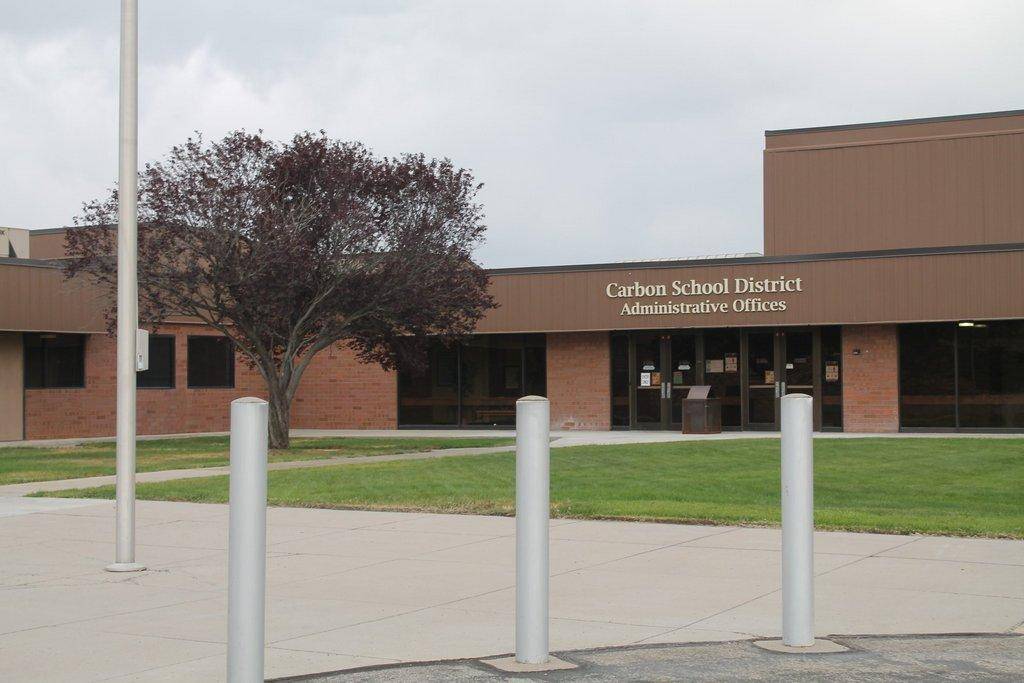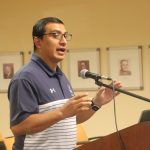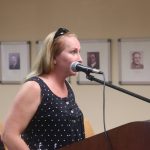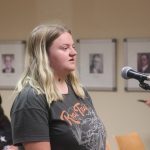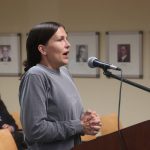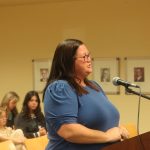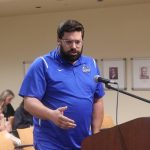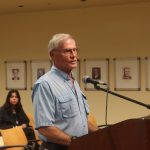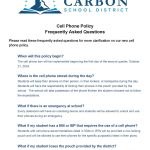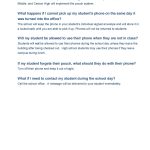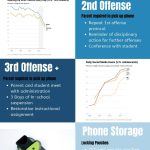“It is not our intent to keep students from contacting their parents,” said Superintendent Mika Salas.
During the Carbon School Board meeting on Wednesday, many community members voiced their opinion regarding the recent announcement of the cell phone ban in Carbon School District’s (CSD) secondary schools.
CSD announced on Tuesday that beginning Oct. 21, a cell phone ban will take effect, aimed at reducing distractions in the classroom. This news prompted many parents to express their concerns during public comment.
Concerned parent Chantel McIntyre, although supportive of the cell phone ban, questioned why this policy is being implemented so suddenly rather than at the beginning of the school year.
“To take a big part, unfortunately, of our children’s lives away, is going to be an upheaval. I feel so bad for the teachers”, said McIntyre. “You as a board are not going to deal with the issues. The teachers are going to deal with the issues. That is unfortunate, because they deal with enough crap as it is.”
McIntyre suggested that instead of banning cell phone signals in the pouches, parents should take responsibility for their children’s cell phones by downloading apps to control when the phones are active, shifting the burden from teachers to parents.
“We are in charge of that child. We send them to you to teach them, you send them back. We take care of them. They are our responsibility, even after school,” stated McIntyre.
Parent Robert Fitch raised concerns about students under 504 plans or Individualized Education Programs (IEPs), noting that his son must regularly check his phone for health issues.
Salas clarified during the action portion of the meeting that there will be no changes for students with 504 or IEP plans, as confirmed in the FAQ section on their website. Madison Clark, a student in the Carbon School District, gave the board a public comment from the student’s perspective.
“Do you think students are actually going to listen? Many students have quite blatantly said that when they get these pouches, they are going to throw them away or burn them. Students will not listen,” declared Clark.
Salas later explained that the cell phone pouches are not mandatory; they are simply an aid to reduce distractions. While students may use the pouches, they are not required to take them or even lock them; that decision is left to the students.
Career Technical Education (CTE) teacher Anthony Cilli joined the discussion to offer insight from the teaching perspective.
“Our main objective as educators is to help our students be as educated, to learn as much as possible. Right now, that is impeded because of personal cell phones,” said Cilli. “We want as few distractions in our classrooms as possible so that our students can get the best education that we can provide for them. This is not meant to be punitive, in my view. This is meant to help our students and give them every opportunity to listen and pay attention.”
Parent Deshell Taberna, while agreeing that cell phones are a problem in schools, questioned why students are not allowed to use their phones during lunch. Salas explained that in the proposed policy, cell phone use is banned on campus during school hours, including between classes and during lunch.
“We want to get these kids some connection with each other again,” said Salas.
However, Carbon High School is classified as an open campus, so if students leave the property, they can use their cell phones.
Fitch also highlighted the concern that in the event of an emergency, how teachers would be able to unlock all the students’ pouches. Salas stated that teachers will not be the ones unlocking them.There will be multiple unlocking stations placed strategically around the school.
Salas brought Policy 534, Students’ Election Devices, to the board’s agenda with the intention of changing some of the verbiage, including changing “instructional time” to “school hours” and altering the consequences to reflect the new procedure.
Under the current policy, if a cell phone is used during instructional time, it is confiscated, and there is a first-time fine of $25 for recovery of the device. While this policy has been in effect for years, the Carbon School District stopped enforcing it because it was no longer effective and was a large hassle with the community.
“It was met with incredible public scrutiny,” Salas said.
Under the new cell phone ban, there will be no charge for students to reclaim their property. Parents will need to pick up the phone from the school district after a confiscation. The second offense will result in a conference with the student, and the third offense will require a three-day in-school suspension.
The Carbon School Board motioned to approve Policy 534 as a first reading, with more discussion scheduled for the next meeting on Nov. 13 at 5 p.m.
With the policy wording not yet fully approved, the Carbon School District will begin its soft opening of the cell phone policy on Oct. 21 in the secondary schools. The board will review the changes made to the policy at the November meeting.
- Ben Jones
- Dacia Burten
- Madison Clark
- Deshell Taberna
- Chantel McIntyre
- Anthony Cilli
- Robert Finch
- FAQ
- FAQ
- Infographic on Offenses

